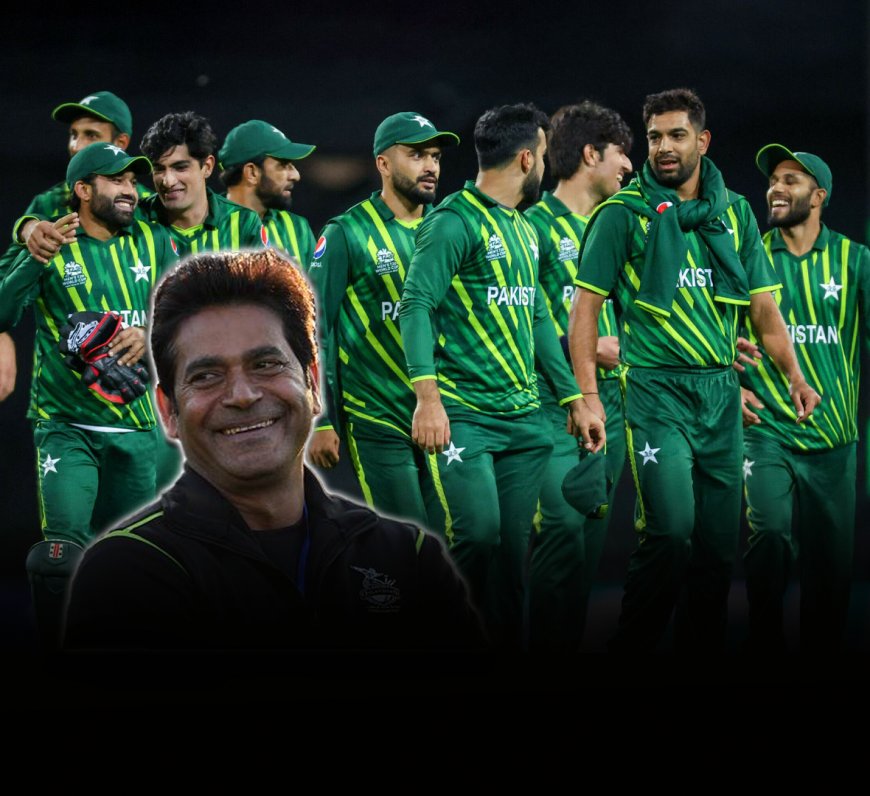Aaqib Javed Urges Pakistan to Expand Player Pool Amid Grueling Schedule
As the Pakistan cricket team gears up for an intense year ahead, interim head coach and chief selector Aaqib Javed has emphasized the need to expand the national player pool to meet the fitness demands of modern cricket.

As the Pakistan cricket team gears up for an intense year ahead, interim head coach and chief selector Aaqib Javed has emphasized the need to expand the national player pool to meet the fitness demands of modern cricket. With a packed calendar, including bilateral series, a tri-nation tournament, and the ICC Champions Trophy, Javed believes a larger pool of players is crucial for ensuring sustainability and preventing burnout.
Here’s a detailed look at Aaqib’s vision and Pakistan’s roadmap for a challenging 2025.
Why Expanding the Player Pool is Essential
Speaking on the Pakistan Cricket Board (PCB) podcast, Aaqib Javed highlighted the evolving nature of international cricket, where players are expected to maintain peak fitness while competing across formats year-round.
“With the way cricket is evolving, we must expand our player pool,” Aaqib said. “This requires taking brave decisions because, sooner or later, every team must do this.”
The former fast bowler stressed that Pakistan’s packed schedule leaves little room for players to recover, which can lead to physical and mental fatigue. By creating a system of rotation and rest, Aaqib aims to ensure players remain fresh and motivated while maintaining high performance levels.
Pakistan’s Grueling Cricket Schedule
The national side is currently in South Africa for the second and final Test in Cape Town, set to start on Friday. This comes after a series of ODIs, T20Is, and the first Test. Once the South Africa tour concludes, Pakistan will have only a brief respite before hosting the West Indies for a Test series beginning January 16.
From there, the team faces:
- A Tri-Nation Series involving South Africa and England at home.
- The ICC Champions Trophy (February 19 - March 9).
- Continuous white-ball assignments, including a series in New Zealand.
“It is impossible to rely on the same players for 12 months straight,” Aaqib noted.
Workload Management: A New Strategy
To address the challenges posed by this hectic schedule, Aaqib has implemented a workload management strategy. This approach focuses on rotating senior players and providing opportunities to emerging talents.
For example, Pakistan’s pace spearhead Shaheen Shah Afridi was rested for the ongoing Test series against South Africa. The decision aims to conserve the left-arm pacer’s energy for the Champions Trophy and other crucial tournaments.
“We need to differentiate, at least to some extent, between red-ball and white-ball teams to ensure players remain energized and motivated,” Aaqib said.
Benefits of Rest and Recovery
Aaqib also stressed the importance of recovery periods for players, suggesting a structured system where athletes receive time off after intense cricketing stints.
“After three months of cricket, they should have four to six weeks off to focus on recovery and training,” he explained.
This approach, he believes, will not only prevent burnout but also provide players with opportunities to enhance their skills and address areas of improvement.
A Bold Vision for Pakistan Cricket
Aaqib’s tenure as interim head coach and chief selector began under tumultuous circumstances, with former head coaches Gary Kirsten and Jason Gillespie resigning amid controversy. Despite these challenges, Aaqib has focused on long-term planning, giving chances to young players during tours of Australia and Zimbabwe.
“Taking brave decisions is the only way forward,” he said.
His vision for a sustainable cricketing future for Pakistan includes fostering a deeper talent pool, managing workloads, and aligning player fitness with the demands of modern cricket.
What's Your Reaction?








































































































